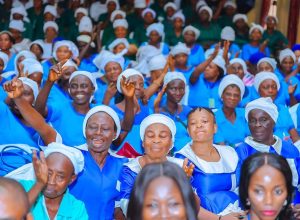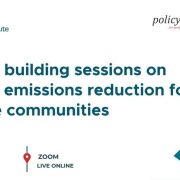Akwa Ibom Government Moves to Address Prevalence of Maternal Mortality But Gaps in FP Funding may Affect Expected Results

By Ekemini Simon
As Akwa Ibom State continues to grapple with the prevalence of maternal mortality rate of 774 to per 100,000 lives, the government of Akwa Ibom State has made moves to address some of the underlined factors behind the deaths.
The latest effort is the planned training of over 4,000 registered Traditional Birth Attendants (TBAs) in the State.
Although TBAs are reputed to provide essential services at the communities where healthcare services are not easily accessible, unprofessional practices by some TBAs have been linked by the authorities as key contributors to maternal mortality.
Speaking at the 2025 TBAs State Convention in Uyo themed ‘Maternal Care and Personal Hygiene’, the Akwa Ibom State governor, Pastor Umo Eno announced that his administration will train TBAs for them to be aligned with current methods of maternal care.
He said on completion of their training, they will be integrated into the primary healthcare system with strict supervision.

The Governor who called on the TBAs not to handle complicated cases of pregnancy advised that it would be the best practice for TBAs to rather encourage pregnant women to go for their antenatal at health facilities and also make referrals for professional care anytime they discover complicated cases.
He said it was time for TBAs in the state to reinvent methods of carrying out their duties to be at par with modern realities stressing that as society evolves, old approaches must give way to modern and advanced methods of health care thus checking maternal mortality and other health complications.
While announcing that more health facilities would be built across the federal constituencies where the TBAs can make referrals easily, the Governor added ” Soon, we will flag-off our Mother-Child Hospital to be located along our Medical Corridor. We are building more primary healthcare facilities across the ten federal constituencies. Once the training is concluded with you, you will be assigned to these primary healthcare facilities where your skills garnered traditionally will align with training you have received and we will all be winners.”
The Governor urged the TBAs to encourage pregnant women who patronize them to avail themselves of the State Government’s health insurance scheme to enable them enjoy healthcare at an affordable cost
Eno warned that the State Government would not hold back from withdrawing their certificates and also prosecute them if they engage in unprofessional practices by attempting to handle complicated cases.
Earlier, the President, Akwa Ibom State Traditional Birth Attendants, Comrade Otobong George, thanked the governor for buying out time to identify and support them.
He noted that TBAs provide immediate healthcare services especially where and when medical services are not easily accessible.
George appealed to the government to support the group’s goal to better the practice by making relevant laws that would regulate activities of practitioners and ensure adequate control and services.
The TBAs convention provided the platform for a health talk on Family Planning services from The Challenge Initiative TCI, a Non-Governmental Organisation that works to promote family planning and reproductive health.
TCI in their presentations called on TBAs to incorporate family planning advocacies in their services in order to reduce maternal mortality in the communities and enhance the economic lives of families.
Meanwhile, as the Government of Akwa Ibom State has taken steps towards a planned training for the TBAs, the gaps of the State government in contributing to the national basket fund for family planning commodities and the lack of provision of consumables to health facilities for the administration of commodities provided by the Federal Government and international partners continues to remain a challenge in Akwa Ibom State affecting the reduction of the prevalence of maternal mortality in Akwa Ibom State.
According to data from the Nigeria Demographic and Health Survey, 2023/2024(NDHS), in Akwa Ibom State, there is 22.6 percent unmet family planning need while there is 65.9 percent family planning demand.







